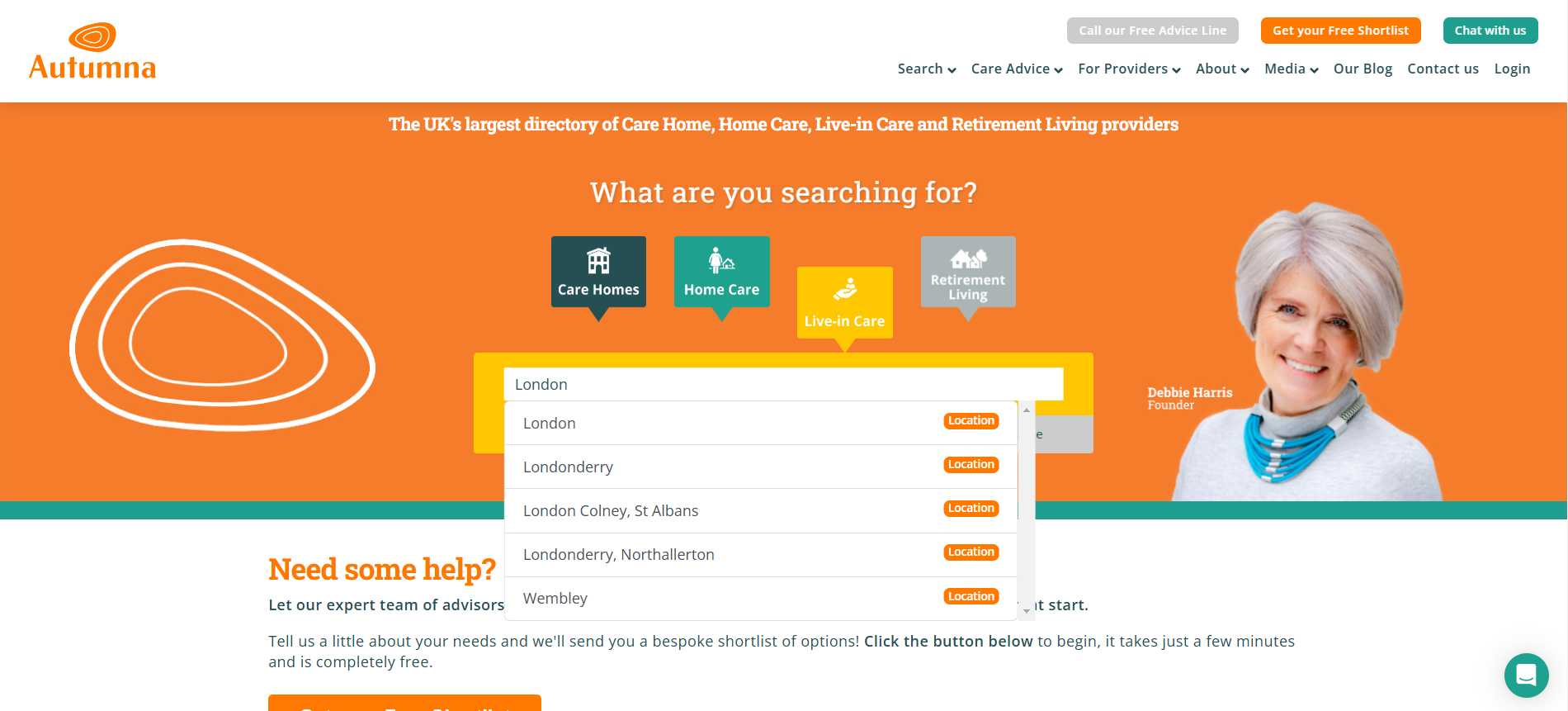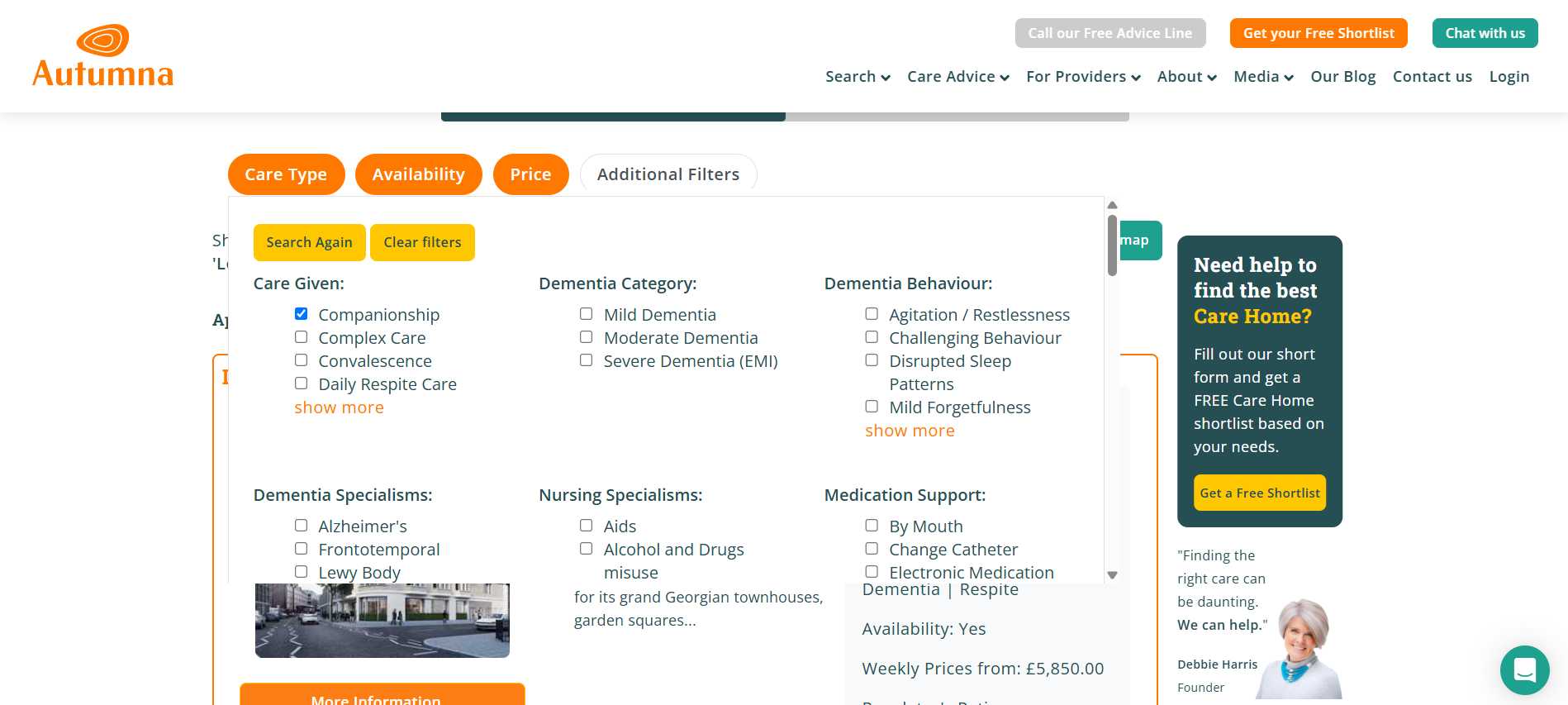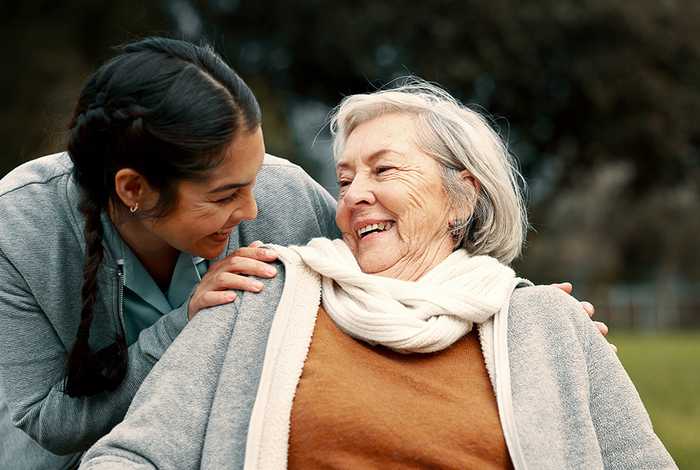Posted by Janine Griffiths
What is companionship care and who is it for?

Loneliness is a growing epidemic in the UK, with millions of people—particularly older adults—experiencing prolonged social isolation.
Studies show that chronic loneliness can be as harmful to health as smoking or obesity, increasing the risk of cognitive decline, heart disease, and even early mortality. For many seniors, a lack of regular social interaction can lead to feelings of depression, anxiety, and a decline in overall wellbeing.
This is where companionship care can make a real difference. More than just practical support, it offers meaningful human connection, helping individuals stay socially engaged and emotionally fulfilled.
Whether it’s through friendly conversation, shared activities, or simply having someone there to listen, companionship care plays a crucial role in improving quality of life and reducing the negative effects of isolation.
What is companionship care?
Companionship care is a type of non-medical support designed to enhance the wellbeing of older adults by providing social interaction, emotional support, and assistance with everyday activities. It is ideal for elderly individuals who may feel isolated, lonely, or need a helping hand to maintain their independence at home.
Unlike personal or medical care, companionship care focuses on enriching daily life through conversation, shared activities, and practical support. This could include enjoying a cup of tea and a chat, reminiscing about fond memories, going for gentle walks, playing games, or accompanying someone to appointments or social outings. Companionship carers provide a familiar and friendly presence, helping to reduce feelings of loneliness while promoting engagement and enjoyment in life.
For older adults living alone or those with mobility challenges, companionship care offers reassurance, friendship, and a sense of connection. It also provides families with peace of mind, knowing their loved one has regular social interaction and support tailored to their needs.
What help can you get from a companionship carer?
A companionship carer provides so much more than just company—they bring warmth, support, and a friendly presence that can make all the difference in an older adult’s daily life. Their role is to offer social interaction, encouragement, and practical assistance, helping individuals stay independent, engaged, and connected to the world around them.
One of the most valuable aspects of companionship care is having someone to talk to and share moments with. Whether it’s reminiscing over a cup of tea, discussing current events, or simply enjoying a laugh, these interactions help combat loneliness and boost emotional wellbeing. A companionship carer provides not just conversation but also genuine emotional support.
They can also assist with outings and social activities, making it easier for older adults to stay active and engaged. Whether it’s a gentle walk in the park, a trip to a local café, attending a social event, or accompanying someone to a medical appointment, a companionship carer ensures their client remains connected to the community and can enjoy life outside the home.
Hobbies and interests play a key role in maintaining a fulfilling lifestyle, and a companionship carer can encourage participation in favourite pastimes. From playing games and gardening to knitting, painting, or even helping with technology like video calls to family members, they provide the motivation and support to keep older adults engaged in the things they love.
In addition to social and emotional support, companionship carers often help with light household tasks. This might include tidying up, preparing simple meals, organising paperwork, or offering a helping hand with day-to-day routines. While they don’t provide medical care, they can also offer gentle encouragement for a healthy lifestyle, such as reminding someone to take medication, staying hydrated, or engaging in light exercise.
Above all, a companionship carer brings reassurance and reliability, offering a friendly and familiar presence that makes everyday life brighter and more enjoyable for older adults.
What are the advantages of companionship care?
Companionship care offers far more than just social interaction—it enhances quality of life, boosts emotional wellbeing, and provides essential support to help older adults maintain their independence. Whether living alone or simply needing a little extra company, having a dedicated companionship carer can make everyday life more fulfilling and enjoyable.
One of the biggest benefits of companionship care is reducing loneliness and isolation. Many older adults experience social withdrawal due to mobility challenges, bereavement, or family members living far away. A companionship carer provides consistent social engagement, meaningful conversation, and emotional support, helping to prevent feelings of loneliness and depression.
Staying active and involved in the community is another key advantage. A companionship carer can encourage and assist with outings, whether it’s a leisurely walk, a visit to a favourite café, or attending social events. This helps maintain a sense of purpose and connection, which is essential for both mental and emotional wellbeing.
What are the advantages of companionship care?
Companionship care also promotes mental stimulation by encouraging hobbies and interests. From playing games and doing puzzles to gardening, reading, or even learning new skills, engaging in activities helps keep the mind sharp and boosts overall happiness. Having a carer to share these moments with makes them even more enjoyable.
Practical support is another valuable aspect of companionship care. While not focused on personal or medical care, companionship carers can assist with light errands and tasks which makes daily life easier and provides peace of mind for both the individual and their family.
Most importantly, companionship care provides reassurance—not just for older adults but also for their families. Knowing that a trusted and caring person is regularly checking in, offering support, and ensuring their loved one is engaged and content brings immense comfort. It’s not just about assistance; it’s about fostering connection, joy, and a sense of security in everyday life.
Who needs companionship care?
Loneliness isn’t just about being alone—it’s about missing connection, conversation, and the warmth of having someone around. Companionship care is for those who could use a friendly face, a listening ear, and a helping hand to brighten their days.
It’s perfect for:
- Solo seniors craving company – Whether they live alone or just want more social interaction, companionship care brings conversation, laughter, and shared moments.
- Loved ones with early-stage dementia – A familiar presence can make all the difference, offering reassurance, gentle guidance, and meaningful engagement.
- Older adults recovering from loss – The passing of a partner or close friend can leave a void—companionship care helps fill it with warmth and support.
- Independent spirits who need a little extra help – From running errands to enjoying hobbies together, companionship care adds ease and enjoyment to everyday life.
- Family members seeking peace of mind – When work or distance makes daily visits tough, knowing a loved one has regular companionship brings reassurance.
More than just company, companionship care is about building connections, keeping spirits high, and making every day feel a little brighter.
Types of companionship care
Companionship care isn’t one-size-fits-all—it’s about finding the right kind of support to bring comfort, connection, and joy to everyday life. Whether someone needs a friendly chat over a cup of tea, a helping hand with daily tasks, or simply the reassurance of having someone close by, there’s a type of companionship care to suit every situation.
Home care
For those who want to stay in familiar surroundings but could use a little extra support, home care offers companionship right where it’s needed most. Whether it’s sharing meals, enjoying hobbies together, or simply having someone to talk to, a dedicated companion visits regularly to brighten the day and lend a hand. It’s about maintaining independence while never feeling alone.
Live-in care
Sometimes, companionship isn’t just about having a cup of tea with someone for a few hours—it’s about having someone there around the clock. Live-in care provides constant support, offering both practical help and emotional comfort. From morning routines to evening chats, having a friendly presence in the home can make all the difference, ensuring safety, company, and a reassuring sense of connection day and night.
Temporary care (while a loved one is away)
Life gets busy, and sometimes family members need to travel, take a break, or manage other commitments. Temporary companionship care steps in to provide short-term support, ensuring that no one feels lonely or isolated while their loved one is away. Whether it’s a few days or a few weeks, a caring companion can fill the gap, offering conversation, reassurance, and friendly support until family returns.
No matter the type, companionship care is about more than just being there—it’s about making every moment feel a little warmer, a little brighter, and a lot less lonely.
Looking for a companionship care provider?
Autumna makes it easy to find a companionship care provider. All you need to do is head over to our search directory and select the type of care you need. Enter your location.

Select ‘Additional filters’ and choose ‘companionship’ under the ‘Care Given’ section. Then click search again.

You will then be able to view a list of care providers that offer companionship care.

You can also get an even more personalised list of care homes by using our online shortlisting tool. If you need to speak to a knowledgeable advisor, you can call us on 01892 335 330.
Receive a Free Care Provider Shortlist!
Let our expert team of advisers get your search off to a great start.
Tell us a little about your needs and we'll send you a bespoke shortlist of care providers! Click the button below to begin, it takes just a few minutes.
Other articles to read
From the blog

Older Persons Care Advice
How to shortlist care homes in Exeter
April 17th, 2025
Looking for an adult day care centre near you? Discover how to find safe, joyful care for your loved one—and support for yourself—on Autumna.

Older Persons Care Advice
What is Discharge to Assess?
April 16th, 2025
Discover how Discharge to Assess (D2A) supports faster recovery, reduces hospital stays, and how Autumna helps simplify finding the right care.

Older Persons Care Advice
What are the benefits of person-centred care?
April 9th, 2025
Discover the benefits of person-centred care—from improved wellbeing to better outcomes—for individuals, families, and care providers alike.
Frequently Asked Questions
Companionship care provides social interaction, emotional support, and practical assistance to older adults who may feel lonely or isolated. It helps improve wellbeing, encourages independence, and fosters meaningful connections through shared activities and friendly conversation.
Unlike personal or medical care, companionship care focuses on emotional and social support rather than physical or healthcare needs. Carers offer company, assist with daily tasks, and encourage engagement in hobbies and social activities, but do not provide medical or personal care.
Companionship care is ideal for older adults living alone, those recovering from illness or bereavement, individuals with early-stage dementia, and anyone needing extra social support to stay active and engaged in daily life.
You can easily find a companionship care provider using Autumna’s search directory. Simply enter your location, select ‘companionship’ under ‘Care Given’ in the filters, and browse a tailored list of providers near you.






